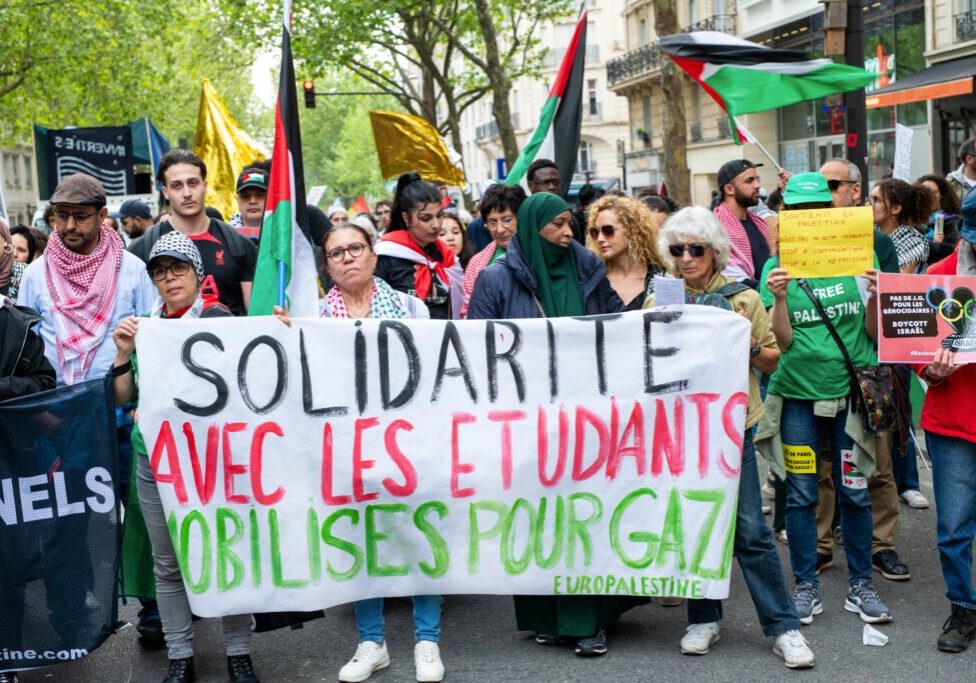Australia/Israel Review
Europa Europa: Centres of learning and loathing
Jan 25, 2010 | Douglas Davis
Douglas Davis
When Umar Farouk Abdulmutallab arrived in Britain from his native Nigeria in September 2005 he was a devout Muslim. By the time he graduated from University College London (UCL) three years later, he was a fully primed suicide bomber, ready to do the bidding of his al-Qaeda masters in Yemen.
Abdulmutallab’s abortive attempt to bring down Northwest Airlines Flight 253 as it approached Detroit on Christmas Day has naturally focused attention on the role of Yemen as a base for al-Qaeda. But it has also highlighted what is now regarded as the complicity of British universities in the radicalisation of Muslim students.
British security sources agree that Islamic radicalisation is allowed to flourish on university campuses, particularly in London. They also agree that university authorities have “a patchy record” in confronting the problem.
The “patchy record” applies equally to the security services. Abdulmutallab did, in fact, appear “on the periphery” of a British counter-terrorism intelligence operation when he had “multiple communications” with individuals who were subject to close surveillance by Britain’s domestic MI5 intelligence agency.
At the time, however, it was concluded that he did not pose a threat to national security. This error was compounded by the decision not to report these “multiple contacts” to the Americans for fear of breaching Abdulmutallab’s right to privacy and freedom of expression under European human rights law.
The mere fact that Abdulmutallab, 23, was president of the Islamic Society at UCL should itself have alerted the authorities to the ideological trajectory on which he was launched. After all, three other presidents of Islamic societies at London universities are among those who have been charged with terrorist offences over the past three years.
Other terrorists who have graduated from British universities are former London School of Economics student Omar Sheikh, who beheaded Wall Street Journal reporter Daniel Pearl in 2002, and former Kings College students Asif Hanif and Omar Khan Sharif, who carried out a suicide bomb attack on a seaside bar in Tel Aviv in 2003. Abdullah Ahmed Ali, the leader of the 2006 liquid bomb plot to simultaneously explode half a dozen trans-Atlantic airliners, was a graduate of City University in London.
Douglas Murray, Director of the Centre for Social Cohesion, a London-based think-tank, asserts that, “UCL has not just failed to prevent students being radicalised, they have actually been complicit. If any other society at UCL invited someone to speak who encouraged killing homosexuals, that society would be banned immediately. But academics are afraid of taking action when it involves Islamic societies in case they are accused of Islamophobia.”
He notes that “90% of the time” British universities ignore warnings that extremist preachers are scheduled to address students. “If any other student society were inviting those sort of speakers on to campus they would be closed down in seconds”.
Professor Anthony Glees, a specialist in security and intelligence studies at the University of Buckingham, agrees that British universities are reluctant to confront Islamic extremism on campus. “All British universities must look at their Islamic societies and demand assurances that no radicalisation will be allowed,” he says. “If they can’t give those assurances, they should be disbanded”.
Glees, who has made a study of Islamic radicalism on British campuses, is also concerned at the generous private donations to British universities, including Oxford and Cambridge, by Muslim states and individuals. Since 1995, he notes, eight British universities have accepted more than US$500 million to operate “study centres”.
While both the universities and the benefactors insist the donations are intended to promote understanding between the West and the Islamic world, Glees insists the study centres lead to the propagation of one-sided views of Islam and anti-Western propaganda. British universities are in such dire financial straits, he says, that they risk being “held over a barrel”, with no option but to accept the funds from Islamic benefactors.
Such funds do not come without strings. A donation to Oxford University’s Middle East Centre by the Saudi Government led to a series of annual lectures by Saudi Government officials “paying tribute” to the founder of Saudi Arabia and extolling the virtues of the Saudi system. At the University of London’s School of Oriental and African Studies, Iranian Government largesse was swiftly followed by the arrival of an Iranian Government official to lecture students on ways in which Ayatollah Khomeini had “modernised” Islamic thought.
Meanwhile, back in their ivory towers, British university authorities are tremulous when confronting the spectre of radicalisation on campus, and statements invariable point to the overriding importance of free speech. The authorities are, apparently, unconcerned that free speech for Islamists is often used to shut down free speech for their opponents or unaware about the deadly consequences of the radicalisation process. Sooner rather than later – hopefully before airliners start falling from the skies – they will have to grasp the nettle and draw a line between freedom of speech and incitement to mass murder.
That is not the end of the story. In December, police revealed that children as young as seven are being groomed for terrorism, with some expressing a wish to become suicide bombers. Up to ten British school pupils, aged between seven and ten, have now been inducted into a government-run program for individuals who are considered at risk of being radicalised and turning to violence.
Tags: Europe






